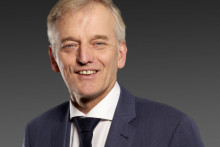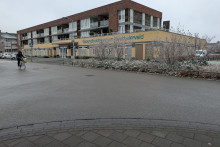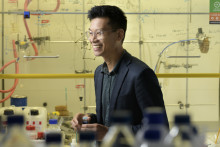Walter van der Meer is a professor of ‘Membrane Technology and Engineering for Water Treatment’ and finding better ways to purify our drinking water is his main focus – both within his research at the University of Twente and his main job as a CEO of drinking water company OASEN.
Focus on the future
‘I’d like to emphasize that our drinking water now is of very high quality, especially in the Netherlands,’ points out Prof. Van der Meer. ‘However, we might deal with a different situation in the future due to global developments, such as population growth and intensive agriculture. Our cluster at the UT (Membrane Science and Technology) is therefore improving existing concepts of water treatment to cope with future problems.’

One step instead of seven
If current technology works fine, what is there to improve? ‘Nowadays, six or seven steps are often used during purification of water. My main goal now is to introduce a method using only one step: one unit of membranes that remove all known and unknown pollutants from water,’ answers Van der Meer. ‘Membranes capable of this already exist and OASEN is planning to open a water plant that uses this ‘one step’ concept within a few years.’
Designing this system that removes all pollutants in one simple step is the professor’s primary focus at the UT. ‘Now we keep adding new steps to old techniques, some of which date back to the 19th century. We don’t use appliances that old in our homes, so surely there is a better method for water purification,’ thinks Van der Meer.
Any water, any pollutants
As he stresses, improved membranes might not be a necessity now, but they certainly will be in the future, when there are new challenges and threats. ‘These membranes work for all types of water: ground water, sea water, surface water and even waste water,’ explains Van der Meer. ‘They can remove everything, and so this technology can maintain high quality of water in the upcoming decades.’
‘Furthermore, this technology will make water plants smaller, easier and more sustainable,’ adds the professor. ‘Usage of such membranes will not require chemicals, but only pressure, meaning electricity, which can be obtained from a sustainable source.’







